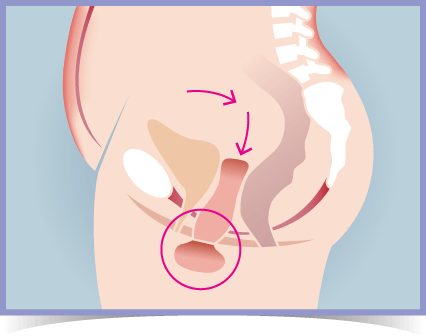
Have you been feeling a dragging sensation, concerned by a bulge down below? These symptoms could be a sign that you have a prolapse, but there are other symptoms as well...
Prolapse Symptoms
Some women don't realise they have prolapse until it is causing them a lot of problems, the most common symptoms to look out for are:
- A dragging sensation down below.
- Feeling a bulge inside or outside the vagina.
- Pain during sex or lack of sensation.
- Abdominal and / or pelvic pain.
- Struggling to empty the bowel.
- Urinary problems, such as stress incontinence, incomplete emptying of the bladder, urinary frequency / urgency or a slow stream.
Causes
There are many causes for prolapse which are usually due to a weak pelvic floor, these include:
- Childbirth
- Age
- Menopause
- Extra weight
- Coughing
- Constipation
- Gynaecological surgery - such as hysterectomy
- Congenital disorders
Kegel8's 5 Top Tips to Treat and Prevent Prolapse
1. Do your Kegel exercises
Kegel exercises over time tone and strengthen your pelvic floor muscles which in turn 'lifts' those prolapsed organs, our Kegel8 Ultra 20targets 90% of the pelvic floor muscles, compared to the 40% targeted with manual Kegel exercises.
2. Lifestyle changes
Making some simple changes can treat and prevent you from developing a prolapse. Shifting those extra pounds will make a difference to your pelvic floor as it won't have the extra pressure on it, making it stronger and more able to keep your pelvic organs in place.
3. Don't get constipated
When you are constipated you strain whilst going to the loo and this puts a lot of pressure on the pelvic floor. Eat plenty of fruit, veg and fibre and try the Go Better stool- a must for people who suffer with constipation.
4. Keep coughing under control
Are you a smoker, do you suffer with hayfever or catch colds a lot? Coughing puts strain on the pelvic floor making it weak. Stop smoking and treat your cough as soon as possible.
5. Avoid heavy lifting
If you have to lift, make sure you are lifting correctly and do not lift heavy objects on your own. The pressure from heavy lifting can cause prolapse.




